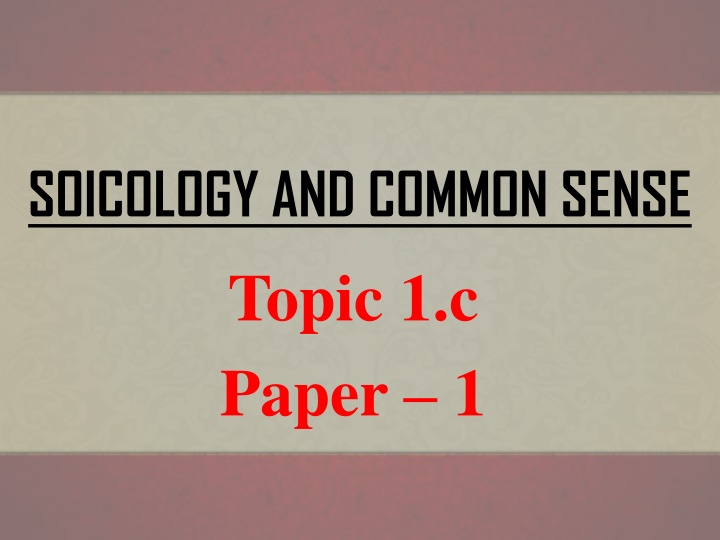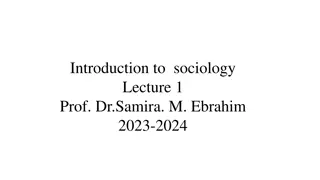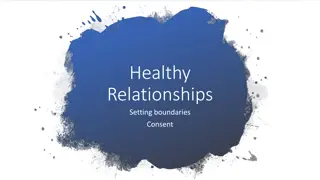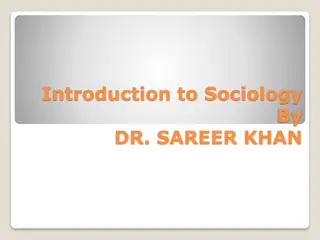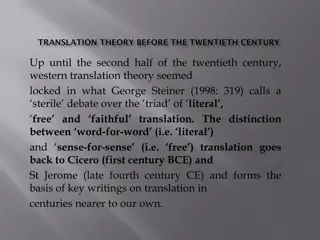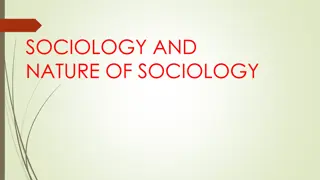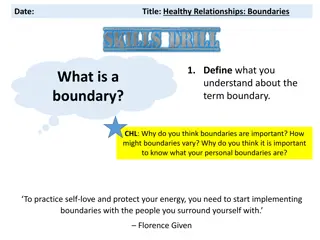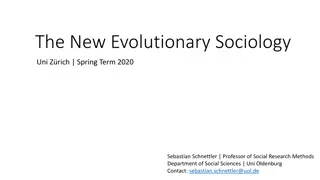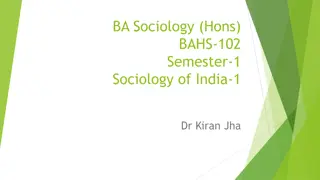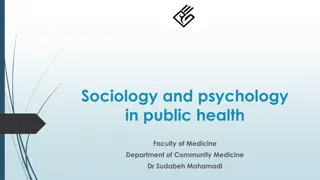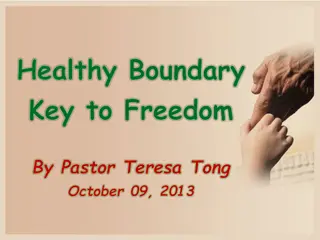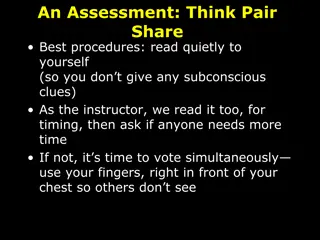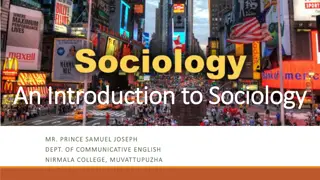Sociology and Common Sense: Exploring the Boundaries
Sociology and common sense intersect in intriguing ways, with common sense offering raw material for sociological theories yet lacking the validity and reliability that sociology strives for. While common sense is rooted in tradition and often status quoist, sociology challenges the taken-for-granted beliefs, aiming for active change and intellectual debate on the structure of society. This dynamic relationship between sociology and common sense sheds light on how they differ and converge in understanding human behavior and social phenomena.
Download Presentation

Please find below an Image/Link to download the presentation.
The content on the website is provided AS IS for your information and personal use only. It may not be sold, licensed, or shared on other websites without obtaining consent from the author.If you encounter any issues during the download, it is possible that the publisher has removed the file from their server.
You are allowed to download the files provided on this website for personal or commercial use, subject to the condition that they are used lawfully. All files are the property of their respective owners.
The content on the website is provided AS IS for your information and personal use only. It may not be sold, licensed, or shared on other websites without obtaining consent from the author.
E N D
Presentation Transcript
SOICOLOGY AND COMMON SENSE Topic 1.c Paper 1
Sociology and Common Sense Need to ponder If sociology is study of obvious or application of common sense? But common sense lacks validity and presents itself as a mere assertion
Common Sense Weber Routine knowledge we have of our everyday world and activities Alfred Schutz Organised, typified stocks of taken-for-granted knowledge And generally not questioned
Point of Similarities Sometimes folk wisdom is close to socio For ex give a person a bad name and it will be blamed for many things more Howard Beckers Labelling theory of deviance
Common sense is often related to social relationships, social setting or institutions which fall under purview of sociology Common sense gives raw material for sociology Common sense can even be supportive of sociological theories
Point of Differences Common sense is status quoist but sociology professes active change It even debates structure and agency intellectually (man-society dualism- man creates society or vice versa) Sociology is sceptic while common sense is enforced through tradition Peter Berger: debunking attitude towards world taken for granted. Irreverent attitude towards religion (Durkheim, Weber and Marx) Common sense explains many things irrationally For ex poverty is due to wish of god Sociology is verified, self-correcting and academic discipline Common sense is assumptive which sometimes is discontinuous/ paradoxical (for example opposite attracts as well as fight) Also, common sense not coherent across countries and eras.
Common sense has specific roles and duties assigned for genders, poor, tribal (stereotypes) Margaret mead study of tribals in papua new guinea region found certain gender role reversal contrary to common sense Common sense is highly value laden Sociology attempts to be objective and scientific Common sense lacks validity and reliability
Post modernist claim that sociology is not superior to common sense as there is nothing as eternal truth Anthony Giddens has said that sociological investigation often becomes common sense For ex sociological investigation of marital breakups have made people believe that marriage is a risky business Phenomenonlogists attempting to study what people do and not why people do certain things
Poverty Common Sense problem families, low intelligence Sociology Structure of inequality in society, chronic irregularity of wages
Gramsci Creation of Common Sense Role of common sense , i.e. dominant ideas about society and about our place in it, in producing cultural hegemony For example, the idea that one can succeed monetarily if one just tries hard enough, is a form of common sense that has flourished under capitalism, and that serves to justify the system For, if one believes that all it takes to succeed is hard work and dedication, then it follows that the system of capitalism and the social structure that is organized around it is just and valid It also follows that those who have succeeded economically have earned their wealth in a just and fair manner, and that those who struggle economically in turn have earned their disenfranchised state This form of common sense fosters the belief that success and social mobility are strictly the responsibility of the individual, and thus obscures the real class, racial, and gender inequalities that are built into the capitalist system
